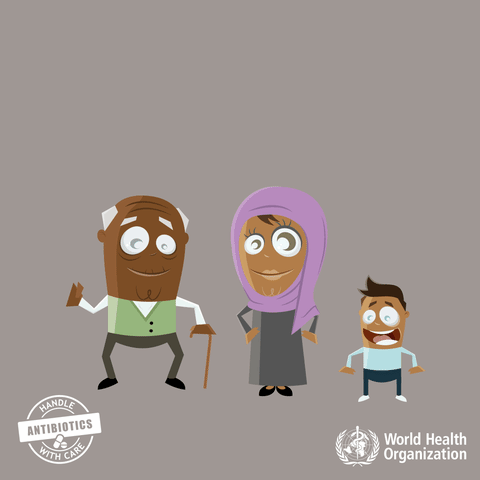🔅 Master or Plagiarist? A Controversial Artist's Legacy & Africa's Struggle with Antibiotic Resistance
Plus, Crypto Craze in Nigeria as Naira's Fall Fuels Interest & A Malaria Crisis
Photo of the day
Freight train hauled by locomotives on the Swakopmund–Walfish Bay line in Namibia
Markets — Year-to-Date:
🟢 Nigerian SE: 66,382.14 (+29.52%)
🔴 Johannesburg SE: 72,382.89 (-0.91%)
🟢 Ghana SE: 3,172.35 (+29.81%)
🔴 Nairobi SE: 95.22 (-25.30%)
🟢 US S&P 500: 4,288.05 (+12.13%)
🔴 Shanghai Composite: 3,110.48 (-0.19%)
Rwanda and Uganda Slowly Growing | According to the latest economic report, Rwanda’s growth slowed down to 6.3% in the past three months, while Uganda’s output expanded by 6.8%.
*Data accurate as of the close of markets across the continent
Brief & Bright: Africa's Top Five
The Rise and Fall of a Literary Maestro: Yambo Ouologuem's Controversial Legacy
Imagine publishing your first book to critical acclaim, only to have it yanked off shelves and labelled as plagiarism. That's what happened to Yambo Ouologuem, a young Malian author, in 1968. His novel, "Bound to Violence," was hailed as one of Africa's greatest novels, but soon accusations of copying from other works led to its downfall. Ouologuem denied any wrongdoing and refused to explain himself, causing decades-long silence before he passed away in 2017, forgotten by many. But now, with a new award-winning book by a West African author that references Ouologuem's story, there's a renewed interest in his work. And people are asking, was he a plagiarist or a master? Some argue that Ouologuem's use of borrowed phrases and ideas was a deliberate artistic technique, a way to bring the Western literary canon into an African context. The question then is, would a Western (read "White") author have faced the same criticism? According to a Belgian academic who studied Ouologuem's life, he was "infused with literature," saw it as a game, and that "What Ouologuem did was fabulous, but at times he was borderline, and even crossed that red line." His legacy is being reevaluated, but Ouologuem's son says his father was so hurt by the accusations that he became almost silent upon returning to Mali and devoted the rest of his life to Islam.
The Bacterial Battle: Africa's Struggle with Antibiotic Resistance
Picture this: you get sick, you take antibiotics, and boom—you're back to feeling like Beyoncé. But for many people in sub-Saharan Africa, that's not the case. Antibiotics are losing their effectiveness, and it's causing big problems. Doctors like Nubwa Medugu are seeing more and more cases where antibiotics just don't work. And the problem is only getting worse. In 2019, there were 24 deaths per 100,000 people in sub-Saharan Africa due to antibiotic resistance. That's double the rate in high-income countries. And by 2050, 4.1 million people in Africa could die from antibiotic-resistant infections. So why is this happening? Well, for starters, many people don't have access to the right medicine. And when they do, it's often fake or low-quality. Plus, healthcare systems and waste management practices in many parts of Africa are, let's just say, not great. While awareness of this issue is growing, there's still a tremendous amount of work to be done. Hope, for now, comes in the form of raising even more awareness (among medical staff as well as the general public), and a high-level meeting on the matter next year at the UN General Assembly should go a long way to doing this.
Malaria: Africa's Unwanted Houseguest That Just Won't Leave

African leaders gathered at the UN general assembly to warn that we're facing the "biggest malaria emergency" in 20 years. Turns out, mosquitoes are getting resistant to insecticides and malaria drugs aren't working as well as they used to. Nor is the testing. Plus, funding for malaria has plateaued since 2015 because everyone was too busy dealing with other issues, like a certain pandemic that cropped up a couple of years later. African leaders are urging for more funding to finally kick malaria's butt by 2030. After all, the continent bears the highest burden of malaria cases and deaths, with children under five being the most at risk. And as if that wasn't enough, the climate crisis (think more rain and higher, mosquito-friendly temperatures) is making it even easier for those pesky mosquitoes to thrive.
Showdown: South Africa vs. Johnson & Johnson
Johnson & Johnson, the American drugmaker, is in hot water with South Africa’s Competition Commission. Why? They're charging an arm and a leg for their tuberculosis medicine, bedaquiline, and extended their patent until 2027 when it expired in July, a practice called evergreening, which blocks cheaper generics from entering the market. South Africa isn’t having it. The health department and legal organization, Health Justice Initiative, are calling out J&J for their “exploitative and unethical behaviour.” The cherry on top? Countries that buy bedaquiline through the Stop TB partnership’s Global Drug Facility only pay a fraction of what South Africa is currently shelling out. It’s equivalent to you paying more than twice as much for a cup of coffee when your friend only paid half.
Crypto Craze in Nigeria: Naira's Fall Fuels Interest in Digital Currency

Forget about the stock market; the real money is in cryptocurrency—especially in Nigeria. As the country's currency, the naira, continues to weaken and inflation skyrockets due to Bola Tinubu's policies, more and more Nigerians are turning to digital currency as a way to protect their finances. In fact, crypto transactions in Nigeria grew by 9% in the past year, reaching a whopping $56.7 billion. But it's not all smooth sailing for crypto enthusiasts in Nigeria, as the government has barred banks and financial institutions from dealing with digital currency. However, this hasn't stopped the tech-savvy population from finding ways to continue to trade and use crypto, like through peer-to-peer networks. Seems the naira has some competition in the money game.
Food for Thought
“It is only a stupid cow that rejoices at the prospect of being taken to a beautiful abattoir.”
— Zambian Proverb.







